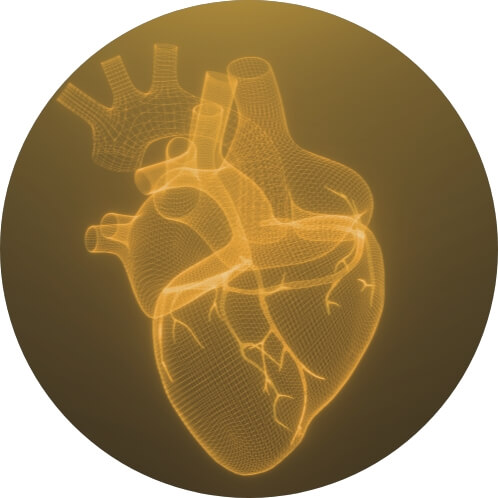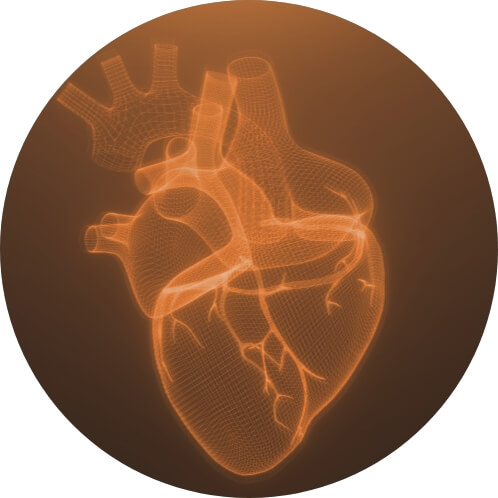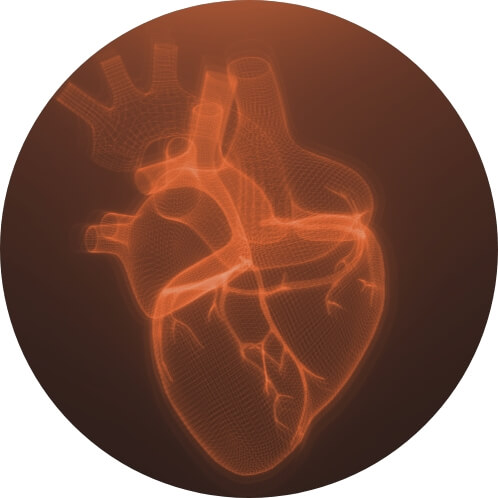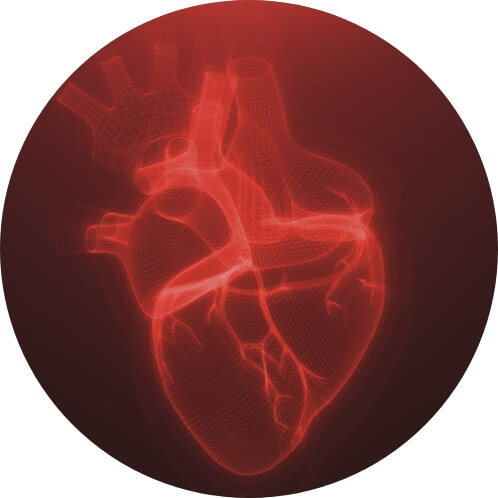RyCarma is the leader in developing investigational therapeutics that repair leaky ryanodine receptors (RyRs) which contribute to disease progression in a range of indications including heart failure and skeletal myopathies.
Targeting a fundamental signaling pathway with a new class of drugs
Pipeline
Heart Failure - rEF
Heart Failure with Reduced Ejection Fraction (HFrEF)
A type of heart failure that occurs when the left ventricle does not contract forcefully enough during systole, the phase of the heartbeat when the heart pumps blood.
Prevalence:
Approximately half of the 23 million cases of heart failure worldwide are HFrEF.
RyCarma plans to initiate a clinical study in HFrEF in 2026.
Ryanodine receptor 1-Related Myopathies (RYR1-RM)
A rare genetic condition causing progressive and significant muscle weakness.
Prevalence:
1:90,000
A Phase 1b open label trial confirmed favorable safety and tolerability of 120 mg and 200 mg oral dosing of ARM210 daily and provided first signs of clinical efficacy, improving fatigue and proximal muscle strength in patients at 200 mg daily.
Other Rycals®

Our heart failure program
Heart failure (HF)—a chronic, progressive condition in which the heart does not pump blood as efficiently as it should—is a major public health threat that lacks disease-modifying therapies.
For decades, the cellular mechanisms causing HF have not been well understood. As a result, patients have largely been treated with drugs that target the symptoms rather than the drivers of disease progression.
RyCarma’s lead drug candidate, surlorian, is designed to be the first therapy for HF that directly repairs leaky RyRs in both cardiac and skeletal muscle. This mechanism has the potential to break the cycle of disease progression within cardiac muscle as well as improve skeletal muscle weakness, a common symptom of HF that is not addressed by existing treatment options.
Leaky RyRs are a crucial contributor to the cycle of heart failure




Breaking the cycle of heart failure
Surlorian has the potential to repair RyR dysfunction due to post-translational modifications that accrue during heart failure. By acting systemically on RyRs in both cardiac and muscle cells, surlorian may prevent further damage to the heart as well as improve skeletal muscle weakness frequently experienced by heart failure patients.
Breaking the cycle of heart failure
Surlorian has the potential to repair RyR dysfunction due to post-translational modifications that accrue during heart failure. By acting systemically on RyRs in both cardiac and muscle cells, surlorian may prevent further damage to the heart as well as improve skeletal muscle weakness frequently experienced by heart failure patients.

Our RYR1-RM Program
RYR1-Related Myopathy (RYR1-RM) is an orphan muscle disease that is caused by more than 700 different mutations in RYR1. These mutations allow ions to leak out of intracellular storage units and into cytoplasm where they disrupt muscle function.
RyCarma’s lead drug candidate, surlorian, is a mutation-agnostic allosteric modulator with the potential to repair leaky channels and improve muscle strength. In a Phase 1 trial, surlorian demonstrated favorable safety, tolerability, and pharmacokinetics. Patients on 200mg daily dosing of surlorian exhibited increased grip and pinch strength as well as reduced fatigue, a key symptom of RYR1-RM.
More information and resources on RYR1-RM are available through The RYR-1 Foundation, a nonprofit dedicated to advocating for and serving families affected by RYR1-related diseases.
To contact RyCarma regarding information on clinical trials for RYR1-RM, please email us at clinicaltrials@rycarma.com.
